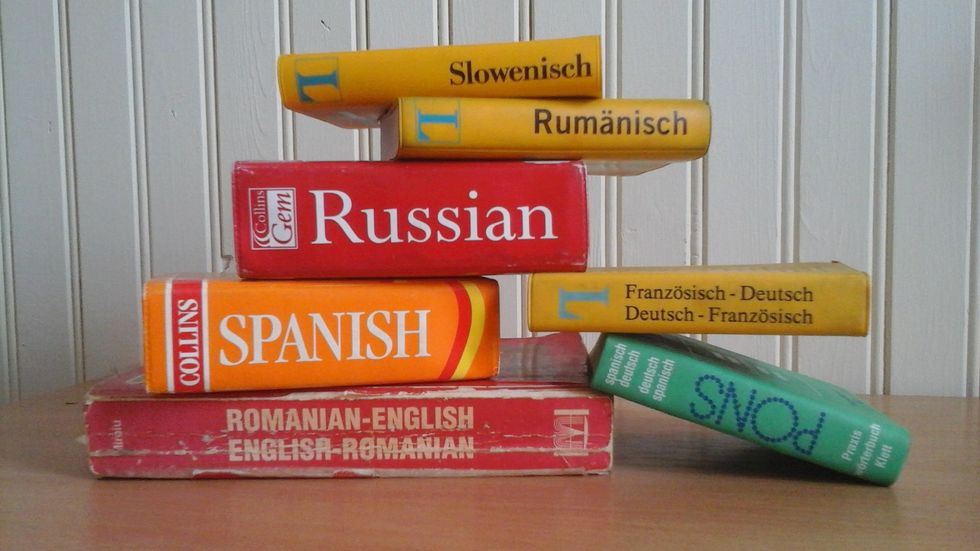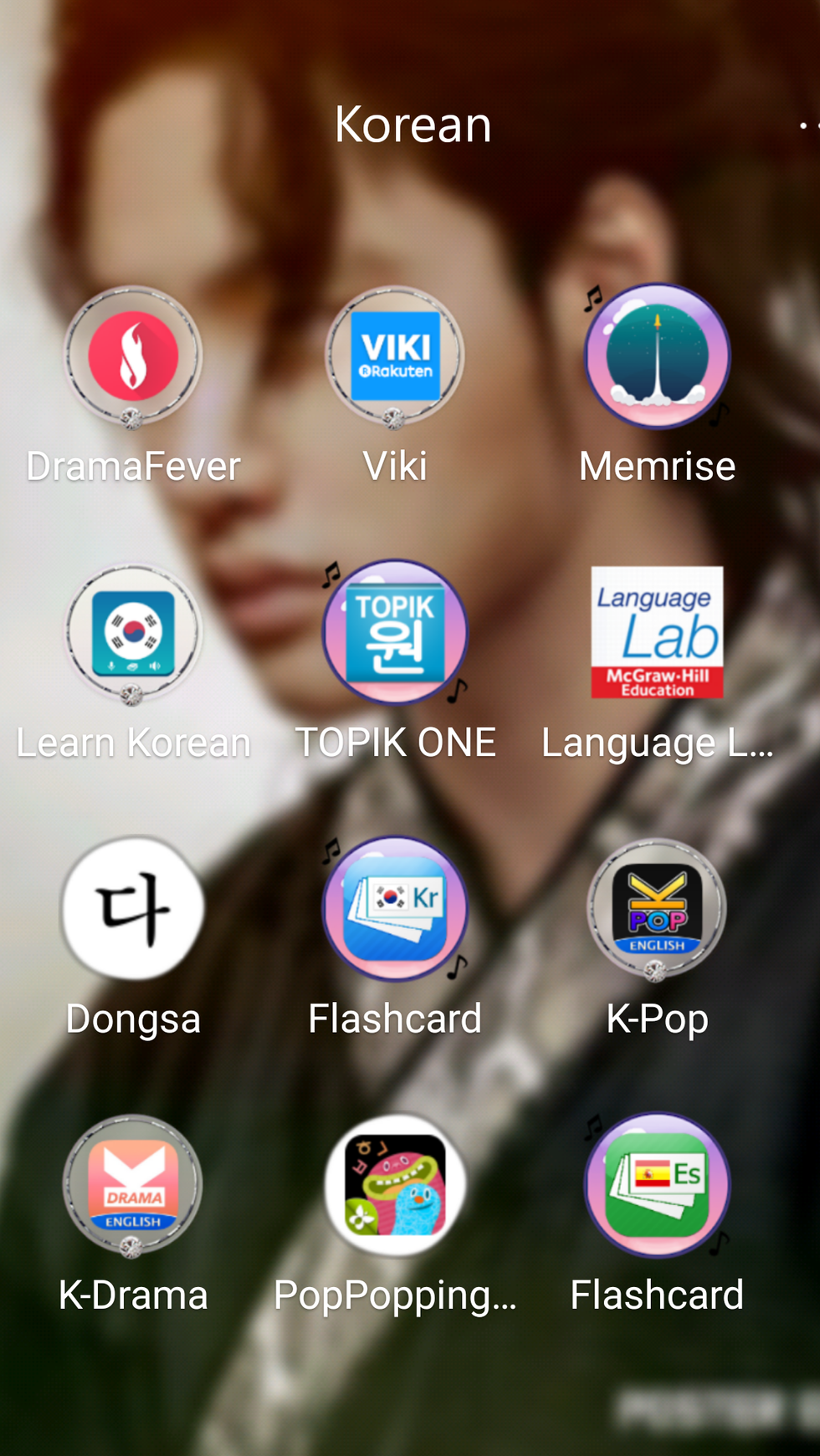As an adult, learning a new language can be difficult. Let’s face it, it wasn’t all that easy in high school either. Coming from a bi-racial family, you would think being a bi-lingual should be a given.
Though my mother is Hispanic, Spanish was rarely spoken at home. So, when it came time to pick a language in high school I rebelled and chose American Sign Language. I loved the class, but never quite caught on to the concept. Though I only remember a little, I had the privilege of explaining how to get your players card to a group of hearing-impaired patrons when I worked at a casino.
Here’s where a little science comes in. The optimal age to learn a second language (L2) according to a study published by the Advances in English Linguistics, is before the age of 11. This is when your brain has the most plasticity and can accept new information. After this, it becomes increasingly harder to grasp linguistic differences since the brain understands the linguistic cues of your first language as law.
But don’t fear, this does not mean that you can’t learn a second language as an adult. Here are the Do’s and Don’t’s of Adult Second Language learning.
1. Sounds/ Accents
Do- Learn your sounds and symbols.
Learn what the accents mean and how it changes the sound of that letter. If you are learning a language that does not use a Roman alphabet (the alphabet most languages are based on) throw out the Romanization. Learn what sound each symbol, or combination of symbols, makes.
There are apps for this, videos on YouTube for almost every language, it may take longer, but you will be more confident in your pronunciation if you do this. This is my language folder on my phone:
Don’t- Ignore the accents or rely on romanization.
The accents can completely alter the way a letter sounds and you will learn the word incorrectly. Once it is in your head that way, it is harder to correct it than if you would have learned it right in the first place.
The Romanization for Arabic or Asian languages are there to help you get an idea of the sounds, but again we have learned a specific sound for these letters and that may not be the sound the symbol actually make.
2. Sentence Structure
Do- Throw out English sentence structure.
Many languages use a different sentence structure than English. Some are just little changes, like Spanish that just rearranges subject, verbs, and punctuation, some are tonal and need different sounds to structure the sentence, while others are contextual.
For example, in Korean, (my target language) they use one phrase (forgive my romanization, it’s just to help make a point) “gwaenchanh-a” to mean, “I’m okay,” “Are you okay?”, “Will you be okay?” “It will be okay.” This word changes depending on the context of the situation, or the tone used when saying it.
Don’t- Try to compare the target language and structure to English language and structure.
This will only add to your confusion. As a child, I would ask my Tia’s (Aunts) how to say a word in Spanish. The response was always, “We don’t have a word for that.”
It took looking into the structure of the Korean language for me to understand that these languages have a different way of explaining things, so while they could have a saying or a way to explain that, they very literally don’t have a word for it.
3. Repeating Words
Do- Repetition, Repetition, Repetition
-Repetition will be the key to retaining what you have learned. If you have tried programs like Rosetta Stone you will see this is the basis for the programs. The trick to this is to study your words for a few days, as frequently as possible, then put them away.
After a few days or even a week, pull them back out and repeat the process. Do this several times, it will help your brain move them from your short-term memory into your long-term memory.
Don’t- Cram the words and move on.
This doesn’t allow your brain to absorb what you are trying to learn, and later you will not be able to recall the words. Think about it as studying for a test, when you look at the material over time, you are able to take the test and pull up the information with more confidence.
If you cram before a test, even if you do manage to pass the test, you would not be able to recall that same information weeks later, and that is what we are trying to accomplish here.
4. Flashcards/ Written Language
Do- Use flashcards
Yes, handwritten as well as flashcard apps. There are a plethora of apps on your phone for this. Flash cards are your lifeline. With app flashcards, they will give you the target word and then you tap the card to see the English translation.
With your hand-written cards, write only your target word on one side. On the flip side write the English translation, then if you have space write it in a sentence in the target and English language. It is important to see how it is used in both sentence structures
Don’t- Write the Romanization or translation on the same side as the word.
If you see the pronunciation or the translation first, you are less likely to see the target word. This will hinder your ability to convert the word from short-term to long-term memory.
5. Immersion/ Translation
Do- Immerse yourself in the language
-Listen to the music, watch their news, their T.V. shows, use subtitles but remember that the structure in which it is written is for you to understand, not necessarily how they are saying it. Watch movies, and read magazines or papers if you can get them. MIT has a small list of foreign language papers. There are also Multilingual Books and Omniglot, that will have a list of online foreign newspapers.
Don’t- Try to translate these yourself
When just starting out you are not proficient enough to correctly translate the language, not even Google Translate is 100% accurate and this will just add to the confusion. It is counterproductive. The goal is to hear the sounds and learn to recognize new words and spelling.
6. Chatting In The Language
Do- Find yourself a chat partner in your target language.
This could be difficult for a person that is an introvert like me. It was difficult for me to take that first step to speak to a native Korean. Fortunately, there is this great app for your phone called HelloTalk where I could find native Korean speakers who were interested in learning English.
There are many other languages in this app as well. Here we can ask questions, or post on our walls and native speakers can make corrections for you. You could also send audio so that you can hear how a word or phrase is pronounced in the native language, and they can correct your pronunciation. Much of what I have learned has been through this app.
Don’t- Chat with others who are learning the language like you.
This may seem like a good idea, learning with someone who is at your level. And while studying together is okay, trying to converse with someone who is at the same proficiency as you can cause both to learn incorrect pronunciation.
7. Most Used Words/ Speed of Language
Do- Start with the top 100 most used words
You may not be able to start off making sentences this way, but by learning their most used words you can catch these words more often when you hear a conversation. This will help you to place the words within their structure. Also, you may be able to understand the subject of the conversation.
Don’t- Be afraid to ask for the speaker to slow down
Most native speakers will be understanding if you cannot keep up with the speed of their speech. There are many languages that are spoken quickly, run words together, or have different dialects depending on where you are at (like when I get mad and my Texan comes through). Most people won’t mind repeating it for you or slowing it down so that you can catch the words.
8. Use Of New Language Skills
Do- Speak as much as you can in your target language.
-Repetition is very important as an adult learning a second language. Once you learn a word, use it as much as possible. When someone I’m familiar with calls, I answer with “여보세요” (yeoboseyo) which is the informal way to say hello. With those I don’t know well, it’s “안녕하세요” (annyeonghaseyo) which is the formal way to say hello. I say please and thank you, wake my children in the morning, refer to my husband all in Korean. It has become a part of my every day.
One of my chat buddies sends me pictures of his food every day at breakfast, lunch, and dinner, and this is how I learned those words. I also learned how to ask if the food is delicious, or tell him that my food is delicious.
Don’t-Be careless about how you use the language.
Some languages have words that are similar to ours but have very different meanings. Something that is a regular word to them could be an insult to one of the many different ethnicities in the United States.
9. Knowledge
Do- Name things you know
This one goes with #8, but it can’t be reiterated enough. Once you learn a word use it frequently, around the house, to family, you could even stick post-it notes on an item to help you with this in the beginning. When you pass the item say the word on the post it. This helps by associating the item and the word. In the market when you recognize an item, think of it in the language.
Don’t- Go shouting the words in public
Again, there are words that may sound insulting to others. It’s easier to say it in your head or quietly and avoid the conflict and explanation that you are learning a foreign language.
10. Written Words
Do- Start a journal in your target language
This may start out with your writing down the vocabulary words you learned that day or practicing writing out the structure, but eventually, you will be able to write full sentences.
Just write about your day or try your hand at some poetry. The more you practice the better you will get and you will be able to write a full entry in the language before you know it.
Don’t- There is not really a don’t for this one
-As long as you are using it as a practice, you can practice with it by writing your favorite words, passages from a book you have started to read, or writing the lyrics of your favorite songs. Just as long as you don’t pass the material off as your own work, its uses are limitless.
11. Make Mistakes/ Stay Strong
Do- Last and most important
Allow yourself to make mistakes. Mistakes are a form of learning, and sometimes they can be the best way for you to really catch on to the language. Most native speakers will understand that you are learning, they didn’t learn English overnight.
Don’t- Let mistakes cause to you give up.
Taking a break is okay. Learning a language is complicated and no one expects you to learn it quickly. There will be those who can catch on to languages faster, don’t let this discourage you. Don’t forget why you wanted to learn in the first place and keep that as your motivation to keep on.
I may not be proficient in my target language, but these tips are what helps me as an adult assimilate a new language that is very different from my primary language. I’m learning new words and phrases faster than I thought possible, and these could be a basis for you to start learning as well.





 all stars lol GIF by Lifetime
all stars lol GIF by Lifetime two women talking while looking at laptop computerPhoto by
two women talking while looking at laptop computerPhoto by  shallow focus photography of two boys doing wacky facesPhoto by
shallow focus photography of two boys doing wacky facesPhoto by  happy birthday balloons with happy birthday textPhoto by
happy birthday balloons with happy birthday textPhoto by  itty-bitty living space." | The Genie shows Aladdin how… | Flickr
itty-bitty living space." | The Genie shows Aladdin how… | Flickr shallow focus photography of dog and catPhoto by
shallow focus photography of dog and catPhoto by  yellow Volkswagen van on roadPhoto by
yellow Volkswagen van on roadPhoto by  orange i have a crush on you neon light signagePhoto by
orange i have a crush on you neon light signagePhoto by  5 Tattoos Artist That Will Make You Want A Tattoo
5 Tattoos Artist That Will Make You Want A Tattoo woman biting pencil while sitting on chair in front of computer during daytimePhoto by
woman biting pencil while sitting on chair in front of computer during daytimePhoto by  a scrabbled wooden block spelling the word prizePhoto by
a scrabbled wooden block spelling the word prizePhoto by 
 StableDiffusion
StableDiffusion
 StableDiffusion
StableDiffusion
 StableDiffusion
StableDiffusion

 women sitting on rock near body of waterPhoto by
women sitting on rock near body of waterPhoto by 
 Photo by
Photo by  Photo by
Photo by  Photo by
Photo by  Photo by
Photo by  Photo by
Photo by  Photo by
Photo by  Photo by
Photo by  Photo by
Photo by  Photo by
Photo by  Photo by
Photo by 









